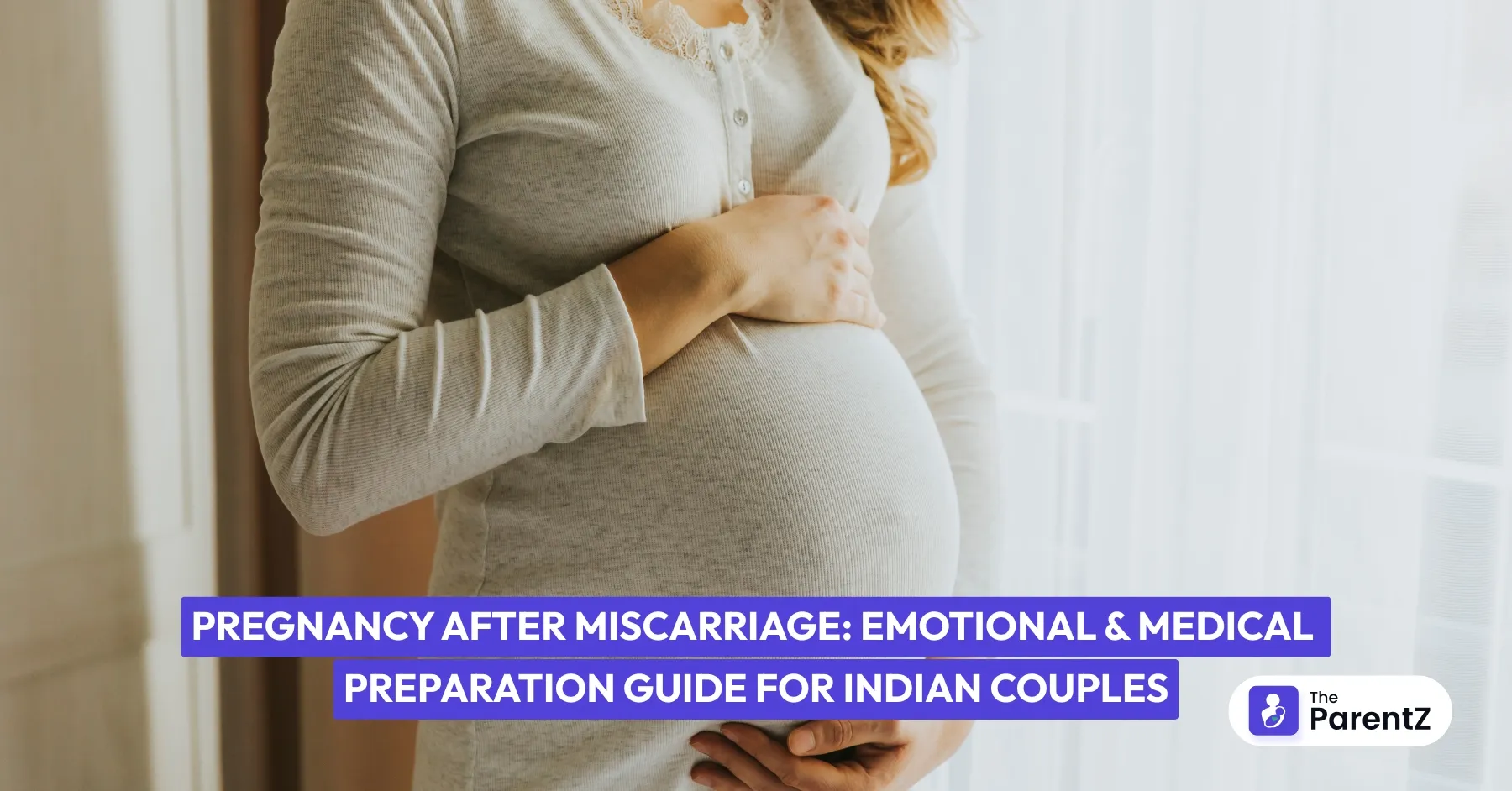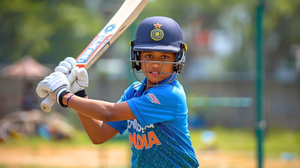The loss of a baby is always a hard thing to deal with, especially for new mothers. Pregnancy after miscarriage journeys tend to be more stressful, whatever the stage, especially if the couple has been unsuccessful in the past. Fortunately, there is a lot of practical advice and support available for these couples, particularly when preparing for a healthy pregnancy after loss.
This guide attempts to capture the complex cultural perspectives on pregnancy after miscarriage in India, informed by the data and medical best practices.
Understanding Miscarriage
A miscarriage, also referred to as spontaneous abortion, denotes the loss of a gestation that occurs before the completion of the twentieth week. The relevant epidemiological data for India closely mirrors international statistics: many pregnancies culminate in early loss, contracted well before an individual may detect gestation.
The causes of abortion are quite varied. They often include chromosomal abnormalities, but can also involve anatomical malformations, hormonal disorders, infections, immune system issues, lifestyle factors, and sometimes, the exact cause isn't known.
While a miscarriage might not cause long-term damage to your ability to have children, the physical and emotional effects can still be very intense. That's why experts agree that careful and thoughtful planning for the next pregnancy is really important. Our recommendations for conceiving after a loss focus on restoring health and reducing risks, both of which are key to achieving successful pregnancies in the Indian context.
Why "Preparing For Healthy Pregnancy" Matters
The concept of "preparing for a healthy pregnancy" extends beyond the moment of conception. Rather, it encompasses a multifactorial approach that entails aligning physiological, psychological, and social determinants before the embryo implants. Vital components include:
- Priming the body through uterine repair, endocrine recalibration, and nutritional repletion;
- Reducing pathogen and maternal-fetal interface vulnerabilities that elevate the risk of recurring pregnancy loss;
- Cultivating emotional resilience through counselling, support networks, and stress-reduction modalities;
- Vigorously supervising chronic disorders, including thyroid dysregulation, diabetes mellitus, and urogenital infections; and
- Promoting the nutritional and behavioural health of the partner.
Focusing on these key areas really pays off. We see clear improvements like fewer obstetric complications, stronger health reserves for mothers, a higher chance of delivery at full term, healthier newborns, and a cautious reduction in preterm labor risks. Because access to healthcare, availability of micronutrients, and local cultural practices vary so much across the Indian subcontinent, it's so important to have a proactive and thoughtful plan in place to prepare effectively.
Medical Preparation Steps
Here are the medical or physical preparation steps couples in India should consider:
1. Timing: When To Try Again
According to most fertility and obstetric practitioners in India, at least one menstrual cycle should pass before trying to conceive again to allow the uterus to heal and to enable accurate dating for the next pregnancy.
Some guidelines recommend waiting for 2 to 3 months or even 3 to 6 months, depending on the severity of the miscarriage, the individual's symptoms, and complications such as infection, heavy bleeding, surgical procedures (like D&C), and emotional distress.
Always consult your gynecologist, as each case is different. If recovery is physically demanding, taking the necessary time to heal is the best course of action.
2. Complete Health Assessment
Before attempting pregnancy again, couples need to have a medical assessment. Areas that need focus include:
- Obstetric/Gynecologic Evaluation: Look for uterine anomalies such as a uterine septum, fibroids, and check for any retained products of conception. Evaluate prior tissue scarring and procedures to check for any retained products of conception. Assess for scarring from previous surgical procedures.
- Hormonal screening: Assess Thyroid function, Prolactin, Luteal phase deficits, and even Polycystic Ovary Syndrome (PCOS), if necessary.
- Diagnosing infections: Assess and identify infections such as Urinary Tract Infections (UTI), Vaginal infections, and in some cases even TORCH infections, and sexually transmitted infections that may have likely contributed.
- Genetic or karyotype counselling, if warranted, may have greater accessibility in urban settings or with fertility clinics, especially in the case of two or more miscarriages/ recurrent losses.
- Check for chronic conditions: diabetes, hypertension, anaemia. In India, nutritional anaemia is common; correcting it is crucial.
3. Nutrition, Supplements & Diet
- Folic acid: To prevent neural tube defects, it is common practice to take folic acid supplements before pregnancy, dosed at 400–800 micrograms daily.
- Iron: Many Indian women enter subsequent pregnancies with insufficient iron, which is needed to avoid miscarriage and the maternal fatigue that often accompanies it, and to support fetal development.
- Other micronutrients: Zinc, calcium, Vitamin D, and B12 are important. Seafood (where safe), dairy, pulses, green leafy vegetables, nuts, and seeds help.
- Balanced diet: Whole grains, lean proteins, and fruits & veggies, healthy fats (nuts, seeds, oils), and processed food, excessive sugar and saturated fats must be limited.
4. Lifestyle Adjustments
- Smoking and alcohol: These two must be avoided at all costs. These two contribute to miscarriage and impaired fertility.
- Caffeine: Avoid elevated caffeine consumption. Some studies have found that high caffeine consumption may also increase risk, so minimizing this is best.
- Weight Management: Achieving a healthy weight is important, as being underweight or overweight (obesity) both increase risk. Work with your doctor or a nutritionist for your best healthy BMI goals.
- Exercise: Gentle to moderate activity is best. Walking, light yoga, and swimming are good. Avoid strenuous exercise until you have recovered.
5. Psychological Healing & Emotional Readiness
- Grieving is normal: Miscarriage brings grief, possibly guilt, and fear. In Indian culture, sometimes silence or stigma may make it harder. Allow time.
- Counseling / Talk therapy: A self-directed support group or therapy that focuses on perinatal loss can also be beneficial. Couples may benefit together.
- Support networks: The support system of family, friends, or even emerging NGO support groups in India, through shared experiences, can be profoundly connecting to someone in isolation.
- Mind-body practices: Stress, anxiety, hormonal balance, and self-directed mind-body practices guided through the channels of yoga may become instrumental.
6. Monitoring Cycle, Fertility Signals
- Track menstrual cycles: After a miscarriage, cycles may be irregular for a while. Monitoring helps recognize when you've had a full cycle.
- Ovulation predictors: Kits, basal body temperature, cervical mucus observation all help identify fertile windows. Useful especially if planning conception.
7. Partner's Health
Do not forget the husband's health, as the quality of sperm, lifestyle (smoking, drinking, & diet), & in some instances, genetics in recurrent miscarriage, may be factors from both sides.
Common Myths and Misconceptions
Clarifying some wrong beliefs can reduce unnecessary fear:
Myth: If there is a miscarriage, there shall always be a miscarriage.
Reality: The outcome of a missed miscarriage can all too often be successful.
Myth: You should always wait a long time (like a year).
Reality: Medical guidance often suggests 1-3 months depending on individual recovery; waiting longer isn't always necessary if you are physically and emotionally ready.
Myth: Age is no longer a factor once you have had a miscarriage.
Reality: Age, particularly the older maternal age, does increase the risk of miscarriage. However, many younger women with a history of multiple miscarriages are still able to have a successful pregnancy.
Myth: The only solution necessary to the problem is the use of a dietary supplement.
Reality: Supplements can only be useful in the presence of a well-balanced diet, medical treatment, lifestyle adjustments, etc.
Practical Advice and Encouragement
- Talk to your doctor: If you've had a miscarriage, your obstetrician/gynaecologist is your partner in planning the next pregnancy. Ask questions, understand test results.
- Make small sustainable changes: If you have experienced a miscarriage, your obstetrician/gynaecologist can help you plan your next pregnancy. Ask for and attempt to better understand the implications of the tests and results.
- Make changes that can be sustained over time: radical diets, or cutting out everything you enjoy, including foods, cannot be helpful. To take more positive steps, consider incorporating dark green vegetables, reducing your intake of caffeinated drinks, engaging in short-distance walking, practicing better hygiene, getting adequate sleep, and taking regular rest breaks.
- Focus on what you can control: Diet, rest, stress, and medical check-ups. Try not to dwell on the "what ifs".
- Celebrate milestones: Finishing a normal cycle, completing a test, and feeling emotionally stronger. Small wins matter.
Final Thoughts
In India, pregnancy after miscarriage has shown positive outcomes for multiple couples. Successful pregnancies after miscarriage can be achieved by adequately preparing for a healthy pregnancy. This preparation should be holistic; planning should incorporate medical, nutritional, emotional, and relational factors. Taking proper time, undergoing adequate diagnostics, correcting physical and nutritional imbalances, building a network, and changing habits all accomplish the same preparation.
If you or your partner has had a miscarriage, you are likely not alone, and although the journey can feel difficult, it is possible to go forward stronger. With the right preparation, the next pregnancy may well be the one you cherish.
While focusing on your reproductive health, also think about your future family's well-being. Visit TheParentZ.com for expert advice on childhood illnesses, parenting tips, and overall family health. Download TheParentZ App to conveniently monitor your child's developmental milestones and access extensive parenting resources that assist you at each stage.
Medical Disclaimer: This information is for educational purposes only and is not a substitute for professional medical advice, diagnosis, or treatment. Always consult a qualified health provider with any questions about a medical condition.
References:





Be the first one to comment on this story.